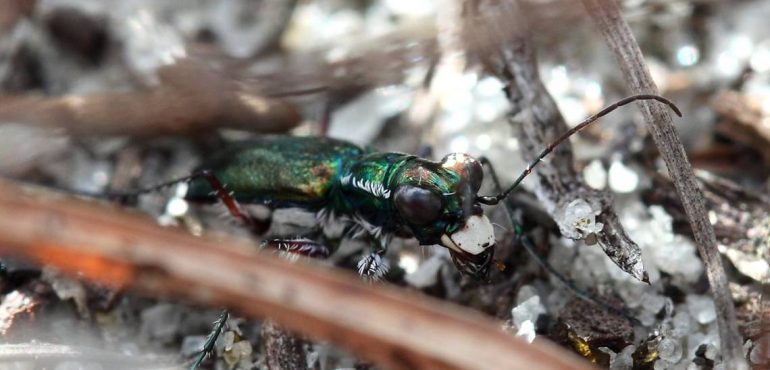The Center for Biological Diversity filed a notice of intent to sue federal wildlife managers on Tuesday for failing to protect dozens of rare species, including the Miami tiger beetle, one of the rarest insects in the U.S. found only on a tiny patch of pine rockland in Miami-Dade County.
In 2016, after adding the beetle to the endangered species list amid a heated battle to build a Walmart on the land, federal officials vowed to designate critical habitat by the fall of 2017. Plans also included 25 other species across the U.S.
But so far, the Trump administration has failed to act on the plans, the center said.
“The Trump administration’s showing complete contempt for America’s endangered wildlife,” Noah Greenwald, the Center’s endangered species director, said in an email. “These animals and plants that are on the brink of extinction need protection now, but they’re not getting it because of political interference.”
The feisty beetle, which conservationists thought had vanished decades ago and declared officially extinct in 2006, was rediscovered on the Walmart land in 2007. Efforts to protect it languished until the Center petitioned to have it added to the list.
In 2011, the cCenter also sued to speed up stalled reviews on a backlog of species. As part of a settlement, the service agreed to develop regular work schedules for completing reviews and protection plans. That eventually led to protecting 200 rare species. But in recent years, work has stalled.
Providing protections like critical habitat for animals added to the list is generally supposed to take between two and three years, Greenwald said. But on average it takes 12 years.
Protecting beetle habitat would also help save the vanishing pineland that provides a home to rare butterflies, bats and plants found nowhere else. In addition to the beetle, Greenwald said, the agency has left 15 rare species nominated for protection, including birds and lizards, languishing for years with no decision. Another half dozen, including the beetle, are still waiting to have their native ranges designated. All included in Tuesday’s notice were listed in work plans over the last three years that missed deadlines.
Source: Miami Herald, Full Article






